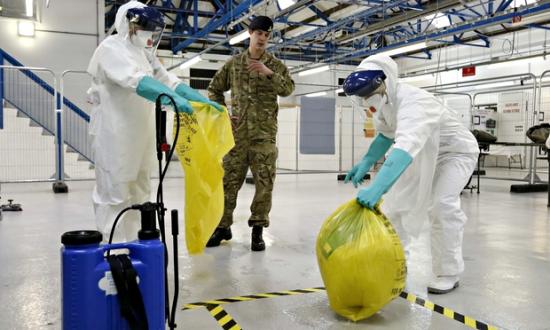Additonal Nigerian and British health workers arrive in Liberia and Sierra Leone to help counter Ebola
(Two stories, scroll down)
REUTERS by James Harding Giahyue and Umaru Fofana Dec. 5, 2014
MONROVIA/FREETOWN --More than 175 Nigerian medics arrived in Liberia and Sierra Leone on Friday to join the fight against Ebola, the first of 600 volunteers promised by the regional giant which contained its own outbreak earlier this year.

An army medic teaches NHS staff how to dispose of potentially contaminated waste last month, before their deployment to Sierra Leone. Photograph: Simon Davis/AFP/Getty Images
The medics will boost weak local health systems that are also struggling to contain other preventable diseases as Ebola discourages people from going to clinics for fear of contracting the fever.
"This is the African spirit you are showing, this is the Nigerian spirit,” Nigeria's ambassador to Liberia, Chigozie Obi-Nnadozie, told 76 Nigerian medics who landed there.
Another 100 volunteers landed in Freetown, Sierra Leone. Months into the Ebola response, experts say they are still short of medical personnel to staff treatment centers.
Recent Comments